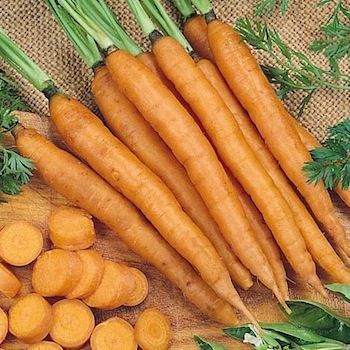
Constituents
- Leaves contain a volatile oil with pyrrolidine, daucine, and mannite.
- Roots yield volatile oil 0.0114%; fixed oil, carotin, lecithin, phosphatide, glutamine, sugar 4 to 12%, d-glucose, malic acid, pectin 1 to 3%, asparagine, inosite, etc.
- Leaves and seeds yield an alkaloid; the seeds, in addition, yield a bitter glucoside.
Properties
Astringent, antiseptic, anti-inflammatory, antioxidant, sudorific.
Parts used
Roots, seeds.
Uses
Believed to be beneficial for cancers and kidney problems.
- For coughs and chest afflictions, the roots are boiled in milk; the milk is drunk and a poultice of the root is applied to the chest.
- In Mexico, roots are boiled in milk and used for coughs and chest affliction.
- For burns and infected ulcers, grated carrots are applied to the affected parts.
- Ointment made from roots and lard used for burns and scalds.
- Raw carrots eaten as mechanical anthelmintic.
- Root made into marmalade used as refrigerant.
- Poultice of carrots also used for ulcers, carbuncles, infected wounds.
- Seeds of the plant when ground to powder and taken as tea for colic and to increase urine flow.
- Tea of carrot blossoms has been used for treatment of dropsy.
- In India, seeds as considered a nervine tonic; Decoction of leaves and seeds used as stimulant to the uterus during parturition. In the Punjab, seeds are used as aphrodisiac and used for uterine pain. Fruit is recommended for chronic diarrhea. Seeds also used as abortifacient.
- In European folk medicine, root decoction used for jaundice and hepatic disorders.
Availability
Cultivated market produce.
Carrot seed essential oil in the cybermarket.
good article
ReplyDeletetaruhan judi dewa poker terpercaya